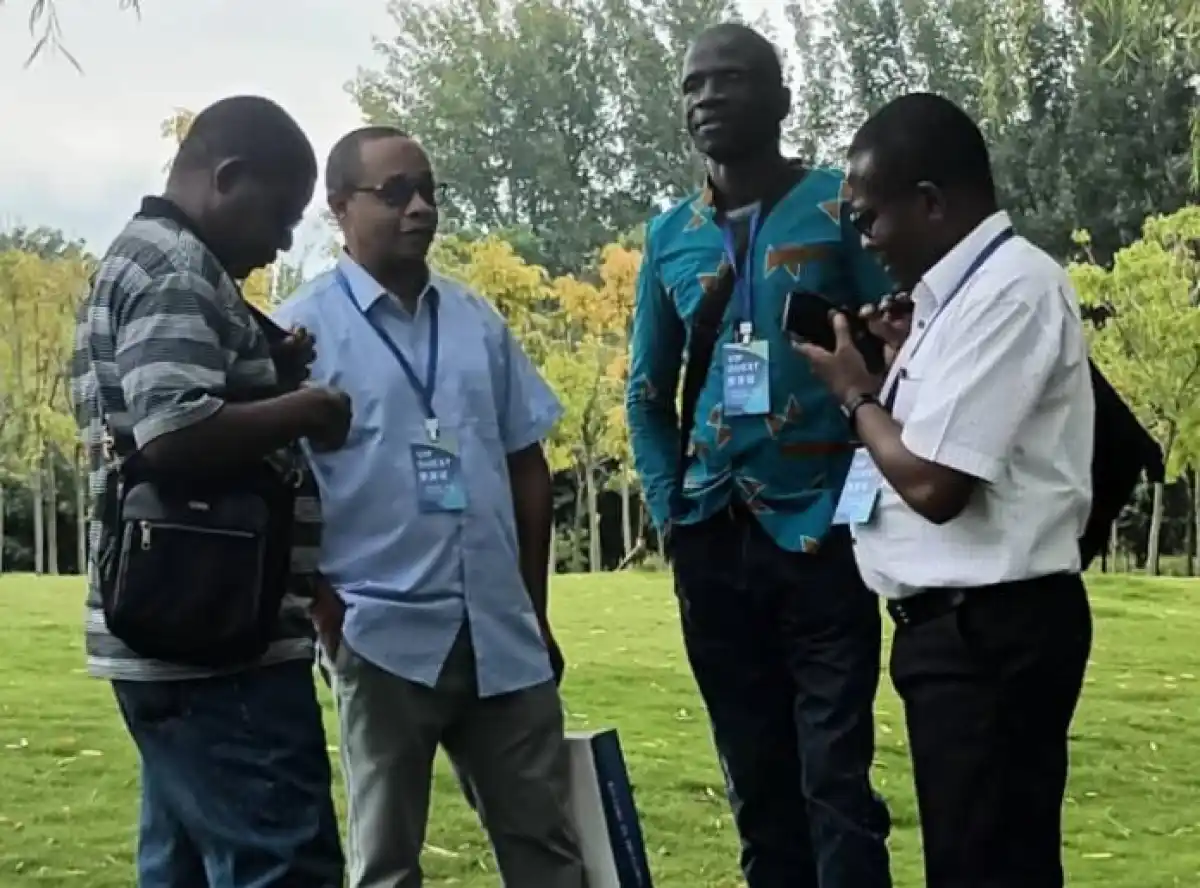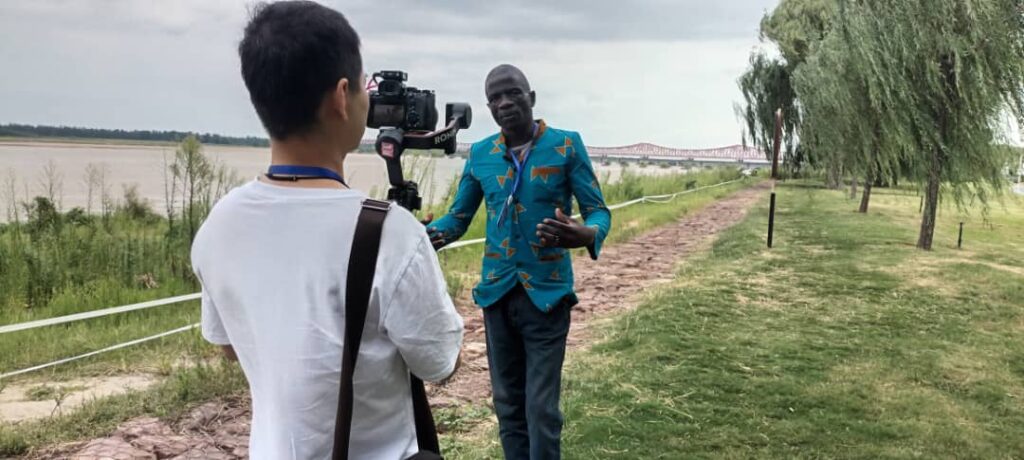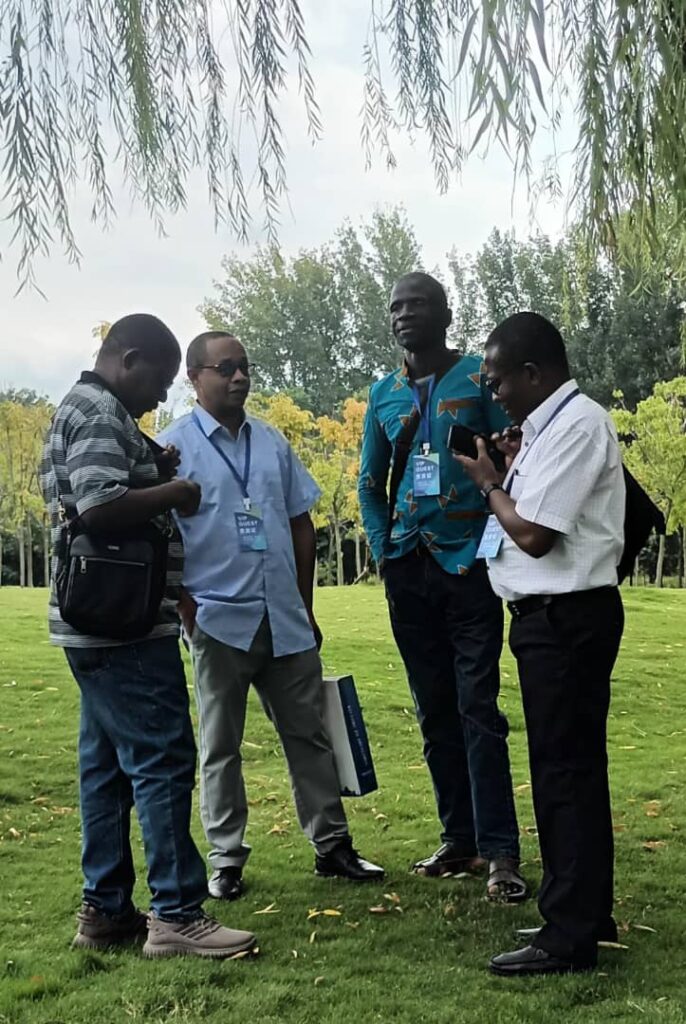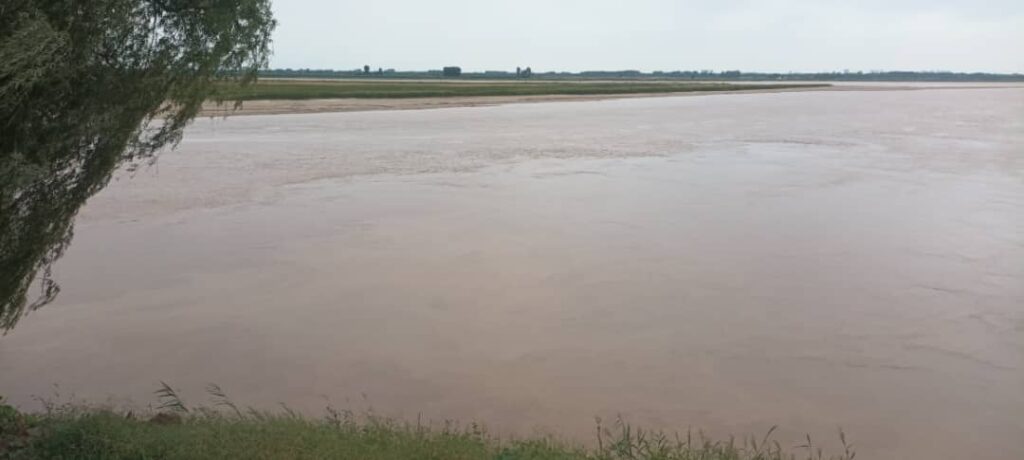
By Chimbizga Msimuko

Journalists from Africa have hailed the best practices being undertaken by the Government of the Peoples Republic of China in the conservation of the Yellow River’s unique ecosystem.
Media practitioners from 11 media houses in East Africa were in the month of September 2024 granted an opportunity of touring China at the invitation of the China Media Group (CMG).
The tour took the journalists to various historical and cultural sites in the Beijing and Zhengzhou. .
As part of their expedition to various ancient and educational places in Zhengzhou, the media practitioners who were chiefly hosted by the CGTN Swahili Service visited the Yellow River where delight and camaraderie generated around them.

The African media specialists appreciated the initiatives being pursued by the Chinese Government in strengthening the environmental governance in conserving the Yellow River’s unique eco-system.
Ramadan Suleiman of the Zanzibar Leo publication said he was happy to visit the site which he only learned about when he was in school.
“I consider it a big achievement,” said Suleiman.
Suleiman further hailed the initiatives taken by the government is conserving the river banks.
“Our hosts have told us that this river which is second largest in China and the sixth longest in the world and it supports the citizens in in nine provinces of China. The good news is that Government is supporting scientific research and smart monitoring as some of the best practices for the sustainable protection of the Yellow River” Suleiman added.
During the visit, the media practitioners were told that the basin of the Yellow River has a present population of about 120-million people; while over 400-million live in the immediate provinces and depend on it as water source.
The ecological experts who conducted the visiting media team around the place disclosed that the basin comprises almost 13-percent of China’s cultivated land area.
Abenah Nkhoma a journalist from Malawi commended the organizers for taking her to the river which she only knew as the cradle of the Chinese civilization. Nkhoma appreciated the best practices by the Chinese Government and hoped other African countries would adopt the same for effective results in the ecological efforts.

“I am delighted to be here at the cradle of civilization. History tells me that the Yellow River is the birthplace of ancient Chinese Civilization since the Xia Dynasty originated on the banks of this great river” she said.
According to historians, the river is named for the yellow color of its water which they say comes out from the large of segment of sediment discharged into the water when the river flows. It was further learned during the tour that the river has over the years provided fertile soils for farming; as such the Yellow River has been cherished as “China’s Pride”
During their ten-day stay in China, the East African journalists attended the African Partners Media Cooperation event in Beijing. The event was planned to initiate mutual co-operation between the China Media Group and the African media organizations.
Speaking on behalf of the Chinese Government, Shen Haixiong, Vice Minister of the Publicity Department of the Communist Party of China Central Committee and President of the China Media Group expressed the hope that the new China-Africa Media partnership will enhance the ability of effectively telling “the China-Africa success story of mutual benefits and joint modernization”.
The Vice Minister expressed optimism that the media joint cooperation will also encourage peace and justice in Africa and China.
At the launch of the African Partners Media Cooperation ceremony, African journalists from the 11 media houses beat drums to symbolize the launch.






0 Comments